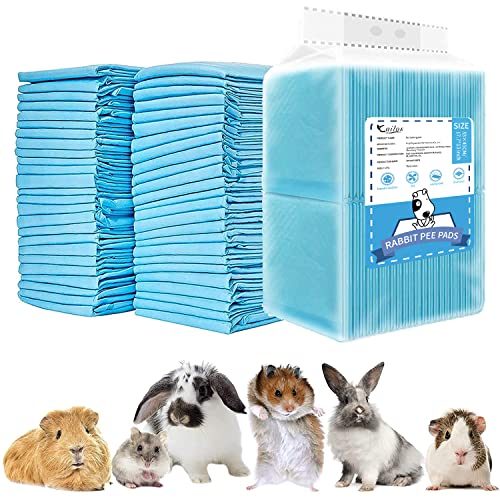Becca
Well-Known Member
Okay so long story short I've been ill for the last 2 lessons of English and our first ever coursework is in for tomorrow.
I was supposed to get my first draught checked by the teacher but of course I wasn't there so I haven't grrrr... So can you lot check this for me LOL
LOL
I haven't finished yet but this is it so far!
[align=center]How does Shakespeare present Julietâs feelings and emotions?[/align] [align=center][/align]
Throughout the play âRomeo and Julietâ Shakespeare uses different techniques to show Julietâs emotions as they change from love and excitement to nervousness and fear. Juliet is only an innocent 13 year old who cannot share her love for Romeo with her family and friends for the reason that their families have been feuding for years. This has affected their relationship in many ways and causes a tragic end to the story.
In Julietâs âGallop apaceâ soliloquy Shakespeare shows the audience Julietâs impatience. She says âGallop apaceâ meaning run quickly along with âfiery footed steedsâ which implies the âhorsesâ are travelling at their fastest to chase away the day. This is an imperative because Juliet is commanding the night to come which indicates her eagerness for night to arrive so her and Romeo can be together. A further example of Julietâs impatience is line 29 onwards where she is saying âAs is the night before some festival, to an impatient child that hath new robes and may not wear themâ This confirms how desperate she is â like a child is excited and impatient on Christmas eve. The day seems to drag out slower and every minute seems like an hour. An additional reason for Shakespeare using the idea of ânew robesâ is that her robes â that she cannot wear â are a way of presenting her new identity as a married woman and more importantly a Montague although she cannot put on her ârobesâ yet because she has not consummated her marriage.
In the soliloquy Juliet reveals the love she feels for Romeo. Shakespeare uses a clever metaphor to show exactly how much the young couple are in love. Juliet says âO; I have bought the mansion of a loveâ this shows her love for Romeo by creating an image of a mansion â which is big â and saying her mansion is full of love. This is unusual because in Shakespeareâs time women didnât usually have their own money to buy anything â especially at the age of 13-14.
One more symbol of Juliet & Romeoâs love is lines: 21-24. She wants everyone to love Romeo as much as she does â even when she dies. She knows her and Romeo cannot live without each other so when she dies Romeo should go into the sky (to heaven) so they are together. What the characters donât know is that this will happen sooner than they expect! Which is an example of dramatic irony â my next paragraph is more about the effects that dramatic irony has.
My next paragraph is about how the audience must be reacting at this point. In this soliloquy there is a lot of dramatic irony. One quote in particular is extremely upsetting for the audience however it is the same quote I analysed to show Julietâs love for Romeo. In this paragraph I will uncover a different meaning. She says âGive me my Romeo and when I shall die, take him and cut him out in little stars, and he will make the face of heaven so fine that all the world will be in love with nightâ Only the audience know that she and Romeo are both going to die at the end of this play. This creates a lot of tension considering what happened in the previous scene â where Romeo killed her cousin. This has shown a different side to Romeo a side Juliet has not seen. But if he is cut up and put in the sky for the whole world to see it will show his true self.
During her second soliloquy it is the night before she is set to marry Paris the man her parents have chosen for her to marry. Instead of her feelings of love and excitement this soliloquy outlines the cold fear she feels before taking the potion.
Shakespeare has shown Julietâs determination and desperation in her words âWhat if this mixture do not work at all? Shall I be married then tomorrow morning?â Shakespeare uses rhetorical questions as an example of dramatic irony because the audience knows the potion will work and that she will not marry Paris in the morning.
I was supposed to get my first draught checked by the teacher but of course I wasn't there so I haven't grrrr... So can you lot check this for me
I haven't finished yet but this is it so far!
[align=center]How does Shakespeare present Julietâs feelings and emotions?[/align] [align=center][/align]
Throughout the play âRomeo and Julietâ Shakespeare uses different techniques to show Julietâs emotions as they change from love and excitement to nervousness and fear. Juliet is only an innocent 13 year old who cannot share her love for Romeo with her family and friends for the reason that their families have been feuding for years. This has affected their relationship in many ways and causes a tragic end to the story.
In Julietâs âGallop apaceâ soliloquy Shakespeare shows the audience Julietâs impatience. She says âGallop apaceâ meaning run quickly along with âfiery footed steedsâ which implies the âhorsesâ are travelling at their fastest to chase away the day. This is an imperative because Juliet is commanding the night to come which indicates her eagerness for night to arrive so her and Romeo can be together. A further example of Julietâs impatience is line 29 onwards where she is saying âAs is the night before some festival, to an impatient child that hath new robes and may not wear themâ This confirms how desperate she is â like a child is excited and impatient on Christmas eve. The day seems to drag out slower and every minute seems like an hour. An additional reason for Shakespeare using the idea of ânew robesâ is that her robes â that she cannot wear â are a way of presenting her new identity as a married woman and more importantly a Montague although she cannot put on her ârobesâ yet because she has not consummated her marriage.
In the soliloquy Juliet reveals the love she feels for Romeo. Shakespeare uses a clever metaphor to show exactly how much the young couple are in love. Juliet says âO; I have bought the mansion of a loveâ this shows her love for Romeo by creating an image of a mansion â which is big â and saying her mansion is full of love. This is unusual because in Shakespeareâs time women didnât usually have their own money to buy anything â especially at the age of 13-14.
One more symbol of Juliet & Romeoâs love is lines: 21-24. She wants everyone to love Romeo as much as she does â even when she dies. She knows her and Romeo cannot live without each other so when she dies Romeo should go into the sky (to heaven) so they are together. What the characters donât know is that this will happen sooner than they expect! Which is an example of dramatic irony â my next paragraph is more about the effects that dramatic irony has.
My next paragraph is about how the audience must be reacting at this point. In this soliloquy there is a lot of dramatic irony. One quote in particular is extremely upsetting for the audience however it is the same quote I analysed to show Julietâs love for Romeo. In this paragraph I will uncover a different meaning. She says âGive me my Romeo and when I shall die, take him and cut him out in little stars, and he will make the face of heaven so fine that all the world will be in love with nightâ Only the audience know that she and Romeo are both going to die at the end of this play. This creates a lot of tension considering what happened in the previous scene â where Romeo killed her cousin. This has shown a different side to Romeo a side Juliet has not seen. But if he is cut up and put in the sky for the whole world to see it will show his true self.
During her second soliloquy it is the night before she is set to marry Paris the man her parents have chosen for her to marry. Instead of her feelings of love and excitement this soliloquy outlines the cold fear she feels before taking the potion.
Shakespeare has shown Julietâs determination and desperation in her words âWhat if this mixture do not work at all? Shall I be married then tomorrow morning?â Shakespeare uses rhetorical questions as an example of dramatic irony because the audience knows the potion will work and that she will not marry Paris in the morning.



























































